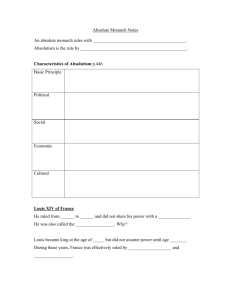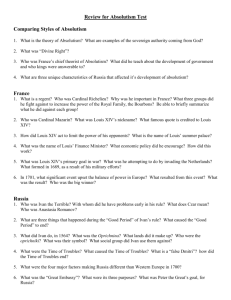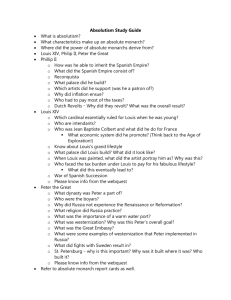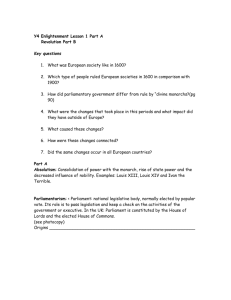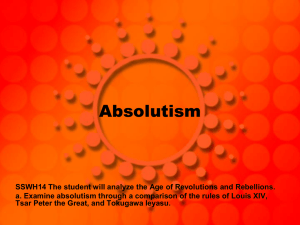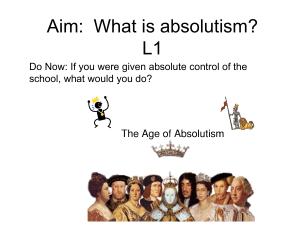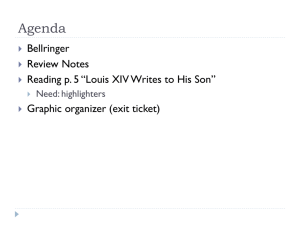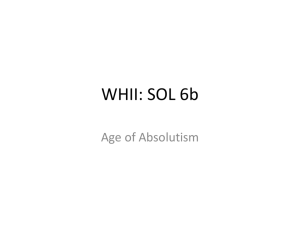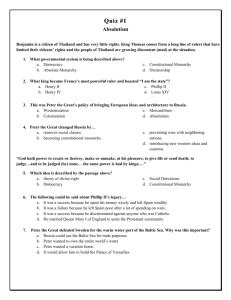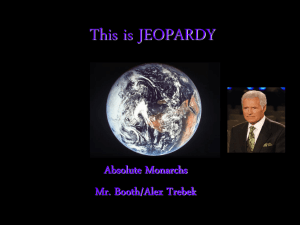Absolutism - Mr. Zittle`s Classroom
advertisement
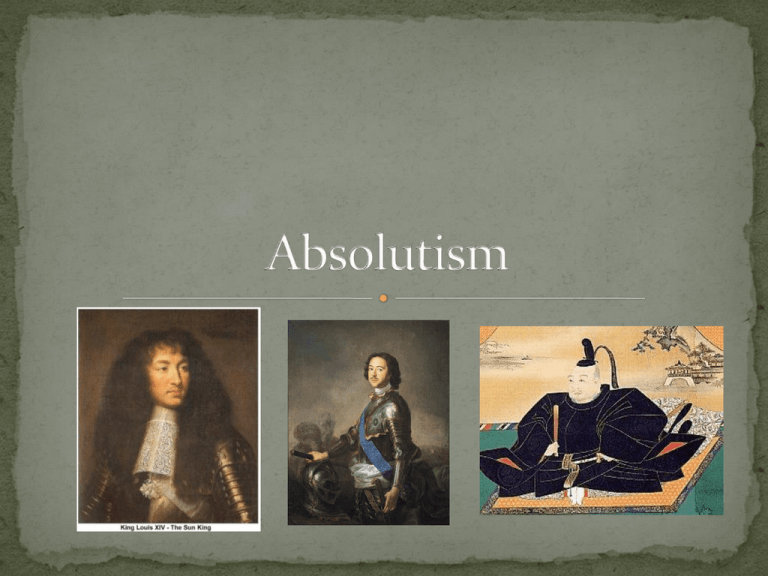
42b - examine absolutism through a comparison of the reigns of Louis XIV, Czar Peter the Great, and Tokugawa Ieyasu Who was Louis XIV? Why is he a model for European Absolutism? Absolutism – the theory that one ruler should hold all the power within the borders of a country Can you think of other absolute rulers in history? Absolute monarchy – Kings/Queens who held all the power Supported by belief in divine right What does divine right mean? Divine right is the belief that god created the monarchy, and the king/queen must answer only to god Causes Effects Religious and territorial Rulers regulated religious conflicts created fear and uncertainty The growth of armies to deal with conflicts caused by rulers Heavy taxes led to additional unrest and peasant revolts worship and social gatherings to control the spread of ideas Rulers increased the size of their courts to appear more powerful Rulers created bureaucracies to control their countries’ economies Called the “Sun King” Absolute monarch Most powerful ruler in French history Patron/supporter of the arts Built the Palace at Versailles to show of his power and make other monarchs jealous Famous for saying “I am the state!” What did he mean? Led France into a series of disastrous wars Louis XIV used his power to expand French domination in Europe The War for Spanish Succession Caused when Charles II of Spain died and made Louis XIV’s grandson the heir, adding to Bourbon power (Louis XIV was part of the Bourbon Dynasty) War dragged on and weakened France Positives Negatives France was still very Wars weakened France strong in Europe The arts flourished under his rule Debt and taxes lay the foundations for the French Revolution What is absolutism? What is divine right? What did Louis XIV mean when he said “I am the state!?” Why did the War of Spanish Succession start? Who was Peter the Great? What was his impact on Russia? Before Peter the Great, Russia was more influenced by Asian customs than those of Western Europe When we say “Western” Europe, what countries are we referring to? Russia was also a country of serfs Do you remember what serfs were? Peter spent a long time in Western Europe and then came back and launched a campaign to reform Russia What were some of the things Peter saw in Western Europe? What did he study in Europe? When Peter returned home, what were his goals? What did he order Russians to do? Why did Peter want warm water ports? Modernized Russia; increased its power greatly Built St. Petersburg as a seaport to make it easier to travel west Introduced the potato Raised the status of women and made nobles wear Western fashions Why did Peter build St. Petersburg? What are his reforms? Describe culture in Russia before Peter?

